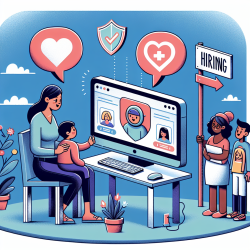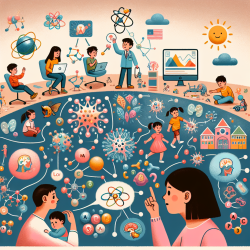Introduction
In the realm of education and gender equity, understanding the dynamics of gender attitudes and their impact on future aspirations is crucial. The research article "Adolescent Girls and Their Family Members’ Attitudes Around Gendered Power Inequity and Associations with Future Aspirations in Karnataka, India" provides insightful data on this topic. This blog aims to guide practitioners in using these findings to improve their skills and encourage further research.
Understanding the Research
The study, conducted in rural Karnataka, India, explores the differences in gender attitudes between adolescent girls (AGs) and their family members, and how these attitudes influence the girls' educational and career aspirations. The research involved 2,457 AGs and their family members, focusing on attitudes towards traditional gender roles and violence against women (VAW).
Key findings indicate that while traditional gender roles are often supported intergenerationally, AGs showed greater aspirations when they disagreed with their family's traditional views. This highlights the potential for positive outcomes when AGs are empowered to form their own gender-equitable attitudes.
Implications for Practitioners
For practitioners working in speech language pathology and education, these findings underscore the importance of fostering environments that encourage gender-equitable attitudes. Here are some actionable steps:
- Promote Gender-Equitable Attitudes: Develop programs that challenge traditional gender roles and promote gender equity within families and communities.
- Encourage Open Dialogue: Facilitate discussions between AGs and their family members to address and shift inequitable gender attitudes.
- Support Educational Aspirations: Create supportive educational environments that inspire AGs to pursue their educational and career goals.
- Engage in Further Research: Conduct studies to explore the impact of gender attitudes on educational outcomes in different cultural contexts.
Encouraging Further Research
The study highlights the need for more research in non-Western contexts to better understand the nuances of gender attitudes and their impact on AGs' aspirations. Practitioners are encouraged to contribute to this body of knowledge by exploring similar dynamics in their own regions.
Conclusion
Empowering AGs to challenge traditional gender norms and pursue their aspirations can lead to transformative outcomes. By promoting gender-equitable attitudes and supporting educational goals, practitioners can play a pivotal role in shaping a more equitable future for young girls.
To read the original research paper, please follow this link: Adolescent Girls and Their Family Members’ Attitudes Around Gendered Power Inequity and Associations with Future Aspirations in Karnataka, India.










